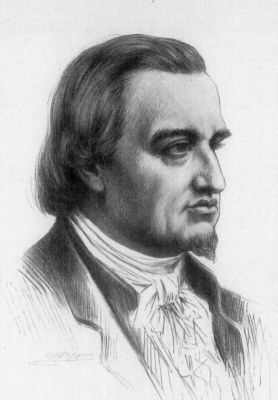
ONE SIGNIFICANT BY-PRODUCT of the American Revolution was a philosophical reshaping of how people viewed revolution.
The British East India Company, American Revolution, & a Whole Lot More – Library of Rickandria
When Benjamin Franklin was in France to win French military support for the American cause, he engaged in an intensive public relations campaign.
Benjamin Franklin: Premier American (British) Spook – Library of Rickandria
He vigorously promulgated the idea of “virtuous revolution”—a concept which had already found increasing favor in the Masonic lodges.
Decoding Rosicrucianism & Freemasonry Using the Unified Field – Library of Rickandria
The public at that time tended to view violent revolution as a crime against society.
Franklin was successful in changing this perception by encouraging people to accept violent revolutions as steps in the progress of mankind.
Revolutionaries were no longer to be frowned upon as criminals, he argued, because they were idealists righting for freedom and justice.
A new motto was coined:
“Revolution against tyranny is the most sacred of duties.” [1]
These bold ideas electrified Paris and helped to win open French support for the American cause, but at a terrible long-term cost to human society.
The ideas expressed by Franklin have helped to stimulate endless bloody revolutions ever since.
The American Revolution was followed by many other revolutions and/or the establishment of republican-style governments throughout the western world and South America.
The success of the American Revolution had made it easy to rally people to fight.
We witness during this era the French Revolution:
The French Revolution – Library of Rickandria
The creation of:
- the Batavian Republic in the Netherlands (1795-1806)
- the Helvetic Republic in Switzerland (1798-1805)
- the Cisalpine Republic in northern Italy (1797-1805)
- the Ligurian Republic in Genoa (1797-1805)
- the Parthenopean Republic in southern Italy
Between 1810 and 1824, the Spanish colonies in South America took up arms and won their political independence.
In 1825, the Decembrist revolt broke out in Russia.
The Jewish Takeover of Russia – Library of Rickandria
A second revolution erupted in France in 1830.
In that same year, a revolt in Holland brought about the sovereignty of Belgium.
A Polish revolution in 1830 and 1831 was successfully stamped out by Russia.
In 1848, a major wave of revolutionary activity swept Europe spurred by an international collapse of credit caused in good part by:
- the new inflatable paper money system
- bad harvests
- a cholera epidemic
In nearly all of those revolutions, we continue to see important revolutionary leadership positions held by Freemasons.
Communism & Masonry: Two Fronts of the Jew World Order – Library of Rickandria
During the first French Revolution, a key rebel leader was the Duke of Orleans, who was the Grand Master of French Masonry before his resignation at the height of the Revolution.
Marquis de La Fayette, the man who had been initiated into the Masonic fraternity by George Washington, also played an important role in the French revolutionary cause.
Who WAS George Washington? – Library of Rickandria
The Jacobin Club, which was the radical nucleus of the French revolutionary movement, was founded by prominent Freemasons.
Communism & Freemasonry: The Red Dragon & the Black Beast – Library of Rickandria
According to Sven Lunden’s article, “The Annihilation of Freemasonry”:
- Herbert
- Andre Chenier
- Camille Desmoulins
and many other “Girondins” [moderate French republicans supporting republican government over monarchy] of the French Revolution were Freemasons. [2]
Freemasons were the primary leaders of the 1825 Decembrist revolt in Russia.
Reading the Signs – Today’s Lesson: Karl Marx – Library of Rickandria
Some of the planning for that revolt took place within their lodges.
In South America, according to Richard DeHaan, writing in Collier’s Encyclopedia:
The order [Freemasonry] played an important role in the spread of liberalism and the organization of political revolution in Latin America.
Like French Freemasonry, the Latin American movement was also generally anticlerical.
In Mexico and Colombia, Masons helped win independence from Spain, while in Brazil they worked against Portuguese domination. [3]
Mr. Lunden agrees:
In Latin America, too, the process of liberation from the Spanish yoke was the work of Freemasons, in large measure.
Simon Bolivar was one of the most active of Masonry’s sons, and so were:
- San Martin
- Mitre
- Alvear
- Sarmiento
- Benito Juarez
—all hallowed names to Latin Americans. [4]
Regarding other revolutions, Mr. Lunden adds:
Many of the leaders in the great year 1848, which saw so many uprisings against feudal rule in Europe, were members of the Order; among them was the great Hungarian hero of democracy, Louis Kossuth, who found a temporary refuge in America. [5]
The 1800’s also witnessed the wars of Italian unification led by Giuseppe Garibaldi (1807-1882), who was a thirty-third degree Mason and the Grand Master of Italy.

Giuseppe Maria Garibaldi (/ˌɡærɪˈbɑːldi/ GARR-ib-AHL-dee, Italian: [dʒuˈzɛppe ɡariˈbaldi] ⓘ; 4 July 1807 – 2 June 1882) was an Italian general, patriot, revolutionary and republican. He contributed to Italian unification (Risorgimento) and the creation of the Kingdom of Italy. He is considered to be one of Italy’s “fathers of the fatherland”, along with Camillo Benso, Count of Cavour, Victor Emmanuel II of Italy and Giuseppe Mazzini. Garibaldi is also known as the “Hero of the Two Worlds” because of his military enterprises in South America and Europe.
The victorious Garibaldi placed Victor Emmanuel, another Freemason, on the throne.

Victor Emmanuel II (Italian: Vittorio Emanuele II; full name: Vittorio Emanuele Maria Alberto Eugenio Ferdinando Tommaso di Savoia; 14 March 1820 – 9 January 1878) was King of Sardinia (also known as Piedmont-Sardinia) from 23 March 1849 until 17 March 1861, when he assumed the title of King of Italy and became the first king of an independent, united Italy since the 6th century, a title he held until his death in 1878. Borrowing from the old Latin title Pater Patriae of the Roman emperors, the Italians gave him the epithet of Father of the Fatherland (Italian: Padre della Patria).
Thrones infiltrated – Library of Rickandria
The Italian wars of unification left two important legacies:
a united Italy and the modem Mafia.
The Mafia was a loosely knit secret society founded in Sicily in the mid 1700’s.
At first, the Mafia was a resistance movement formed to oppose the foreign rulers who controlled Sicily at the time.
The early Mafiosi were popular heroes who specialized in criminal acts against the hated foreigners.
The Mafia built an underground government in Sicily and held power by extortion.
The Mafia assisted Garibaldi when he invaded Sicily in 1860 and declared himself dictator of the island.
After the foreign rulers were ousted and Italy was unified, the Mafia became the violent criminal network we know today.
Freemasonry was clearly an important catalyst in the creation of modern Western-style government.
The vast majority of Freemasons who participated in the revolutions were well-intended.
The representative form of government they helped to create was certainly an improvement over some of the governments they replaced. *
Regrettably, the lofty ideals of those Freemasons were in the process of a speedy betrayal by sources within the Brotherhood network itself.
One consequence of the French Revolution was a severe disruption of the French economy.
Food production had dropped severely, and the new regime was in deep political trouble because the majority of Frenchmen were still loyal to the monarchy.
Under this cloud, the revolutionary government decided to solve the problems of political opposition, hunger and distribution of wealth by reducing the human population of France.
Rather than increase food production to meet the demand, it was decided to reduce the demand to match the lessened amount of food.
Throughout the French nation, a program of mass murder was launched as an official program of the revolutionary council.
This program was known as the Reign of Terror.
People were put to death by all means available, including:
- guillotine
- mass drowning
- bludgeoning
- shooting
and starvation.

Although not as many people were murdered as the council had planned, it has been estimated that over 100,000 people died.
We have noted that genocides are committed by grouping people into superficial categories usually based upon:
- race
- religious belief
- nationality
Genocide IS & Always Has Been a Jewish Ideal – Library of Rickandria
The victims are then targeted for slaughter even though they may be guilty of no crimes against their murderers.
The French revolutionaries took the process to an extreme.
During the Reign of Terror, people were grouped simply according to their economic and vocational standing.
Those who fell into the wrong categories were deemed members of an undesirable social class and were killed.
This was certainly as superficial a distinction as one can make, yet grouping people in this fashion has been extremely successful in factionalizing human beings.
The French Revolution dragged nearly all of the major powers of Europe into a war.
JEWISH BANKSTERS’ WAR ON AMERICA & THE WORLD – Library of Rickandria
Initially benefiting from this was William IX, the prince who had inherited the immense Hesse-Kassel fortune.

William I, Elector of Hesse (German: Wilhelm I., Kurfürst von Hessen; 3 June 1743 – 27 February 1821) was the eldest surviving son of Frederick II, Landgrave of Hesse-Kassel (or Hesse-Cassel) and Princess Mary of Great Britain, the daughter of George II. Upon the death of his father on 31 October 1785, he became William IX, Landgrave of Hesse-Kassel. He was said to have inherited one of the largest fortunes in Europe at the time.
William IX rented out, at a handsome fee, 8,000 soldiers to England to fight against the French during the first half of the 1790’s.
When Napoleon Bonaparte later became emperor of France, William IX seemed to gain even more.
Was Napoleon Jewish? – Library of Rickandria
After Napoleon’s troops occupied German regions west of the Rhine River, including some Hessian properties, Napoleon compensated William IX by awarding him a large section of Mainz and by conferring upon William the title of Elector—a status higher than prince.
The cordiality between Napoleon and Elector William did not last very long, however.
William IX tried to play the old trick of courting both sides of the conflict in order to make a fortune by renting soldiers.
William foolishly leased mercenaries to the Prussian king for a quarter of a million Pounds to fight Napoleon and then tried to claim “neutrality.”
True to the warning of Machiavelli, this double-dealing finally caught up and backfired on the House of Hesse.
Hesse-Kassel was soon annexed and made part of Napoleon’s “Kingdom of Westphalia.”
It was not until after Napoleon’s defeat at the Battle of Leipzig in 1813 that William IX was able to regain Hesse-Kassel.
Hesse-Kassel remained under the control of his dynasty until 1866, when it was taken over by Prussia.
Although the Hessian royal family has remained influential in German society until well into the twentieth century, it never regained exclusive rule over its territory.
Hesse merged into what has become modern Germany—a country that was unified in large part by the Prussian Hohenzollern dynasty.
House of Hohenzollern – Wikipedia
Despite the reversals suffered by Hesse-Kassel, the upheavals in France proved to be a boon for one of William IX’s financial agents:
Mayer Amschel Rothschild (1743-1812), founder of one of the most influential banking houses of Europe.

Mayer Amschel Rothschild (23 February 1744 – 19 September 1812; also spelled Anschel) was a German-Jewish banker and the founder of the Rothschild banking dynasty. Referred to as a “founding father of international finance”, Rothschild was ranked seventh on the Forbes magazine list of “The Twenty Most Influential Businessmen of All Time” in 2005.
Who are the Rothschilds? – Library of Rickandria
Mayer Amschel was an ambitious and hard-working merchant who began his career in the Jewish ghetto of Frankfurt-am-Main in Hesse.
In 1765, two decades before the French Revolution, Rothschild managed to gain a hard-won audience with Prince William IX, who was still at that time living in Hesse-Hanau.
Mayer Amschel strove to ingratiate himself with the Hessian prince by selling antique coins to William at extremely low prices.
William, who always had an eye open to increasing his material fortunes in any way possible, was delighted to take advantage of Rothschild’s generous bargains.
As a reward, William granted Rothschild’s request to be appointed a “Crown Agent to the Prince of Hesse-Hanau.”
This appointment, made in 1769, was more honorary than substantial, but it gave Mayer Amschel a big boost in his community standing and aided his efforts to create a successful banking house.
Global Banking System – Library of Rickandria
During the twenty years following his appointment, Mayer Amschel continued to keep in close contact with Prince William IX.
Rothschild’s goal was to become one of the Prince’s personal financial agents.
Rothschild’s perseverance finally paid off.
In 1789, the year in which the French Revolution began and four years after William IX inherited the wealth of Hesse-Kassel, Mayer was given his first financial assignment on behalf of Prince William.
This, in turn, led to the coveted position as a personal financial agent to the Prince.
Rothschild made a fortune from various activities while serving under William IX.
The French Revolution and the wars it triggered created many shortages throughout Hesse.
Rothschild capitalized on this situation by sharply raising the prices of the cloth he was importing from England.
Rothschild also struck a deal with another of William IX’s chief financial agents, Carl Buderus.
Carl Friedrich Buderus von Carlshausen (second.wiki)
The deal enabled Rothschild to share in the profits from the leasing of Hessian mercenaries to England.

(Harriet) Virginia Spencer Cowles OBE (August 24, 1910 – September 17, 1983) was an American journalist, biographer, and travel writer. During her long career, Cowles went from covering fashion, to covering the Spanish Civil War, the turbulent period in Europe leading up to World War II, and the entire war. Her service as a correspondent was recognized by the British government with an OBE in 1947. After the war, she published a number of critically acclaimed biographies of historical figures. In 1983, while traveling with her husband, she was killed in an automobile accident which left him severely injured.
Virginia Cowles, writing in her excellent book, The Rothschilds, A Family of Fortune, described the arrangement:
At this point Mayer made a proposition to the enterprising Carl Buderus.
England was paying the Landgrave J William IX large sums of money for the hire of Hessian soldiers; and the Rothschilds were paying England large sums of money for the goods they were importing.
Why not let the two-way movement cancel itself out, and pocket the commissions both ways on the bills of exchange?
Buderus agreed, and soon this extra string to the Rothschild bow was producing an impressive revenue. [6]

The Rothschilds: a family of fortune – Anna’s Archive (annas-archive.org)
Out of those beginnings rose the House of Rothschild, named after the red shield (“roth” [red] and “schild” [shield]) used as its emblem.
The Rothschild family soon became synonymous with:
- wealth
- power
- banking
For generations, the Rothschild house was Europe’s most powerful banking family, and it remains influential in the international banking community today.
Sharing the Rothschild house in Frankfurt during its early days was the Schiff family.
The Schiffs also became a major banking family and they have done business with the Rothschilds all the way up until our own time.
Control of the Rothschild house, as well as many other banking houses, passed from father to son(s) over the generations.
Rothschild Bloodline – Library of Rickandria
The Rothschilds, Schiffs, and other banking families were truly part of a hereditary “paper aristocracy” to which Brotherhood revolutionaries had given a great deal of power when they established the inflatable paper money system and its attendant central banks.
Many historians writing about the Rothschild family focus on the fact that Mayer Amschel was Jewish.
Exposing the Jews – Library of Rickandria
The Rothschilds have been important supporters of Jewish causes throughout the family’s history.
Less frequently mentioned is the fact that the Rothschilds were also associated with German Freemasonry.
This association apparently began with Mayer Amschel, who accompanied William IX on several trips to the Masonic lodges.
Whether or not Mayer actually became a member is uncertain.
It is known that his son, Solomon (founder of the Rothschild bank in Vienna), had become a Freemason.

Salomon Mayer Freiherr von Rothschild (9 September 1774 – 28 July 1855) was a Frankfurt-born banker in the Austrian Empire and the founder of the Austrian branch of the prominent Rothschild family.
According to Jacob Katz, writing in his book, Jews and Freemasons in Europe1723-1939, the Rothschilds were one of the rich and powerful Frankfurt families appearing on a Masonic membership list in 1811.

Jews and Freemasons in Europe 1723-1939 – Anna’s Archive (annas-archive.org)
The Scottish degrees used in the German lodges were Christian in nature.
Christian Program & Purpose – Library of Rickandria
This created problems for Jewish men like Rothschild who may have wanted to participate.
To solve the dilemma, efforts were made in Jewish communities to change certain rituals in order to make Freemasonry acceptable to Jews.
Special Jewish lodges were created, such as the “Melchizedek” lodges named in honor of the Old Testament priest-king whose importance we discussed in an earlier chapter.
Exposing the Old Testament – Library of Rickandria
Those who belonged to the Melchizedek lodges were said to be members of the “Order of Melchizedek.”
This was an extremely interesting development, for across the Atlantic Ocean the name of Melchizedek was about to be resurrected on the American continent during what some people believe to have been a series of significant UFO episodes.
Those episodes gave the world a new religion:
the Church of Jesus Christ of Latter-Day Saints, better known as the Mormon Church.
13 Bloodlines of the Illuminati: Moriah & the Mormon Leadership – Library of Rickandria
*
This is not to say that monarchy is always bad.
History has seen a few benevolent monarchs who ruled well, who could act for peace, and who were popular with their people.
A Study of History by Miles Mathis – Library of Rickandria
Hereditary or life-term leadership has the advantage of stability.
It can work if the monarch is accountable for his or her actions and can be removed for chronic incompetence or abuse of power.
Monarchies have rarely functioned well on Earth because monarchs have usually ruled by so-called “divine right” and have therefore not been accountable to the people they governed.
The Gods of Eden – Chapter 29: The World Afire (basecamp.com)

Leave a Reply